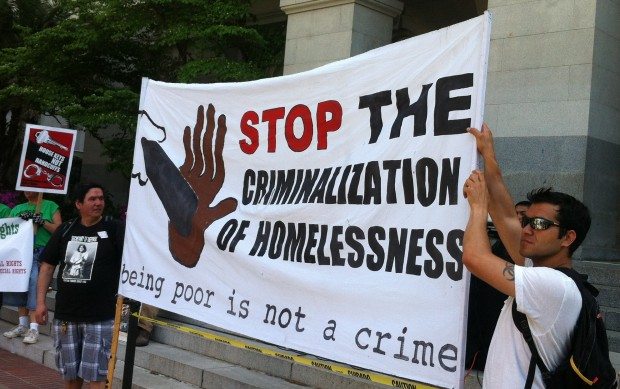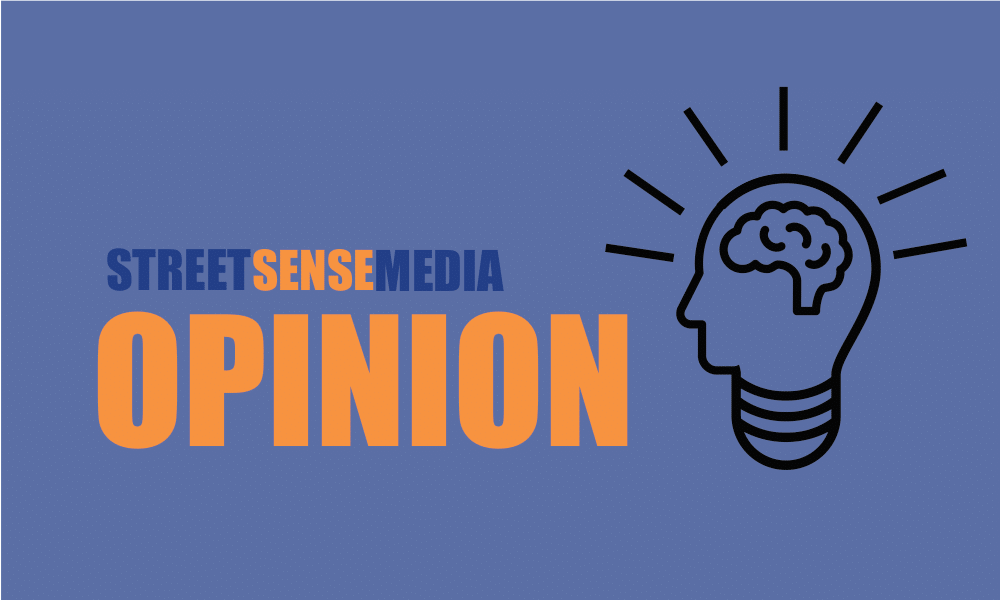This July, a bill aiming to add homelessness to the classes protected by D.C.’s Human Rights Act will be brought to the city council’s Judiciary Committee. This measure would be a step towards ending discrimination against unsheltered people and stopping the criminalization of homelessness.
The Human Rights Act of 1977 currently prohibits discrimination based on 19 traits including race, sexual orientation, gender identity, disability and source of income. It was last amended in 2007. “We have one of the most progressive and expansive human rights statutes in the country,” said Stephanie Franklin, Interim Director of Policy and Communications for the D.C. Office of Human Rights (OHR).
But the act still allows employers, law enforcement, private businesses and housing and healthcare providers to legally discriminate against people they perceive as homeless. Ninety-three percent of the un-housed people surveyed in a 2014 study by the National Coalition for the Homeless (NCH) said they experienced discrimination in the District.
Many of those surveyed said that employers had told them “I don’t hire homeless people.” Survey respondents who qualified for housing vouchers reported being barred from subsidized housing because they didn’t have a current address. In a “Homeless Challenge” program where students live on the street for 48 hours, one group was forced to leave a McDonalds after they paid for their orders — just because they appeared homeless, according to David Pirtle from NCH.
These are only a few instances of discrimination against unsheltered people that inspired the movement for an amendment to the Human Rights Act.
“Communities are refusing to protect people experiencing homelessness,” Pirtle told Street Sense in an interview.
Local activists initially considered drafting a Homeless Bill of Rights to bring to D.C. Council, but they decided council members would be more open to an amendment to legislation that was already in place. This doesn’t mean a Homeless Bill of Rights is out of the question for the future.
Councilmember Kenyan McDuffie drafted legislation in 2014 that would protect people experiencing homelessness from discrimination and gained the support of Councilmember Anita Bonds. Despite a 2015 protest in support of equal rights for unhoused people—largely led by sixth graders—the legislation never made it through the Council.

If the amendment passes this time, OHR is ready to take on cases of discrimination against people experiencing homelessness that will likely arise. “We will vigorously enforce anything that comes our way,” Franklin said.
Currently, people who experience discrimination because they are unhoused can sometimes win cases by filing under personal appearance or other categories, according to Franklin. However, anti-discrimination laws that protect people experiencing homelessness specifically are still vital, according to Tristia Bauman, a senior attorney at the National Law Center for Homelessness and Poverty.
“Because homeless people experience multiple forms of discrimination based solely on their homelessness, it is important that civil rights laws provide them with the protection that they need,” Bauman said in an interview.








